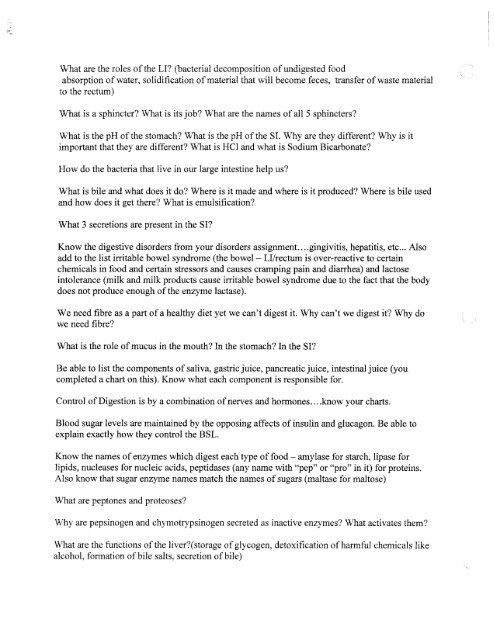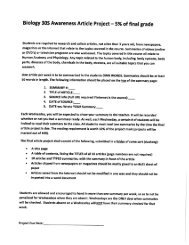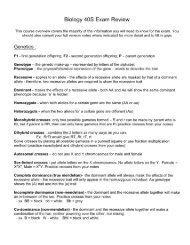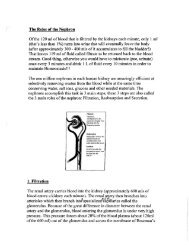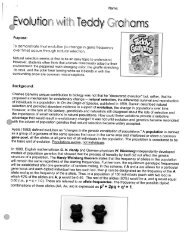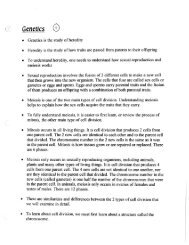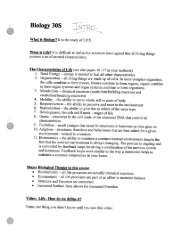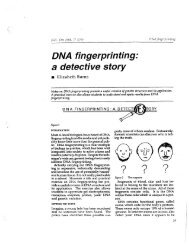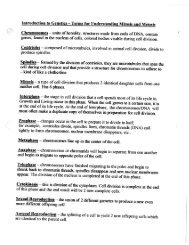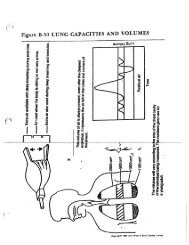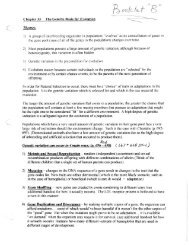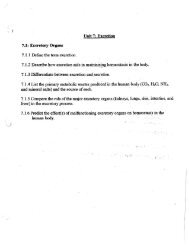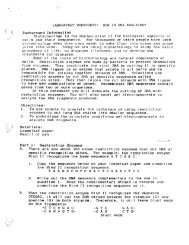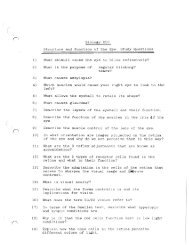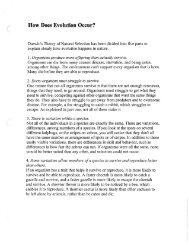Digestive Sys. Review.pdf - Mrs Stovel
Digestive Sys. Review.pdf - Mrs Stovel
Digestive Sys. Review.pdf - Mrs Stovel
Create successful ePaper yourself
Turn your PDF publications into a flip-book with our unique Google optimized e-Paper software.
What are the roles of the LI? (bacterial decomposition of undigested food<br />
absorption of water, solidification of material that will become feces, transfer of waste material<br />
to the rectum)<br />
What is a sphincter? What is its job? What are the names of all 5 sphincters?<br />
What is the pH of the stomach? What is the pH of the SI. Why are they different? Why is it<br />
important that they are different? What is Hl and what is Sodium Bicarbonate?<br />
How do the bacteria that live in our large intestine help us?<br />
What is bile and what does it do? Where is it made and where is it produced? Where is bile used<br />
and how does it get there? What is emulsification?<br />
What 3 secretions are present in the SI?<br />
Know the digestive disorders from your disorders assignment.. .gingivitis, hepatitis, etc... Also<br />
add to the list irritable bowel syndrome (the bowel - LI/rectum is over-reactive to certain<br />
chemicals in food and certain stressors and causes cramping pain and diarrhea) and lactose<br />
intolerance (milk and milk products cause irritable bowel syndrome due to the fact that the body<br />
does not produce enough of the enzyme lactase).<br />
We need fibre as a part of a healthy diet yet we can't digest it. Why can't we digest it? Why do<br />
we need fibre?<br />
What is the role of mucus in the mouth? In the stomach? In the SI?<br />
Be able to list the components of saliva, gastric juice, pancreatic juice, intestinal juice (you<br />
completed a chart on this). Know what each component is responsible for.<br />
Control of Digestion is by a combination of nerves and hormones.... know your charts.<br />
Blood sugar levels are maintained by the opposing affects of insulin and glucagon. Be able to<br />
explain exactly how they control the BSL.<br />
Know the names of enzymes which digest each type of food - amylase for starch, lipase for<br />
lipids, nucleases for nucleic acids, peptidases (any name with "pep" or "pro" in it) for proteins.<br />
Also know that sugar enzyme names match the names of sugars (maltase for maltose)<br />
What are peptones and proteoses?<br />
Why are pepsinogen and chymotrypsinogen secreted as inactive enzymes? What activates them?<br />
What are the functions of the liver?(storage of glycogen, detoxification of harmful chemicals like<br />
alcohol, formation of bile salts, secretion of bile)


